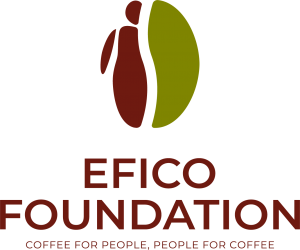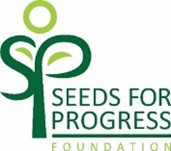EFICO Foundation

Responsible Communication
Quality & Sustainability Expert
At EFICO, green coffee specialist since 1926, contributing to a positive impact and coffee legacy is key. Our sustainable sourcing commitment goes hand in hand with investment in a sustainable coffee future through our EFICO Foundation.
COFFEE FOR PEOPLE, PEOPLE FOR COFFEE
Established as a private foundation in 2003 by Patrick F. Installé, late member of EFICO’s founding family and Michel Germanès, Managing Director, the EFICO Foundation’s goal is to positively impact coffee farmers’ livelihoods, prosperity and environment. The multi-stakeholder approach adopted is unique and is a dynamic tool to foster partnerships. The EFICO Foundation is about PEOPLE – from coffee farmers, their families and local communities to coffee roasters and coffee lovers.
Donors/Partners:
Innovative and scalable projects are supported in coffee producing countries, along with the coffee roasting community and institutional partners.
Key activities:
Foster partnership building, quality education, knowledge transfer, actively work to adapt to and mitigate negative effects of climate change & sustainable income increase for coffee farmers
Signature projects/tools:
- Colombia ∙ A new generation of coffee entrepreneurs
- DR Congo ∙ Strengthening of two smallholder coffee cooperatives beyond their break-even towards full financial autonomy
- Ethiopia ∙ Improve quality education in primary schools of coffee producing communities
- Guatemala & Honduras ∙ World Coffee Research Global Coffee Monitoring Program
- Guatemala ∙ Knowledge transfer and quality education as a driver for women smallholder coffee producers and youth
- Guatemala ∙ First climate-friendly coffee worldwide: Promoting climate-friendly practices in coffee, pilot project
and replication : Implementing climate-friendly coffee farming in Central America
Priority Countries and corresponding areas of activities:
Since 2003, the EFICO Foundation reports back and shares learnings on more than 70 projects in 17 producing countries. This fits within a larger framework of our commitment to the principles of the United Nations Global Compact and Sustainable Development Goals.














